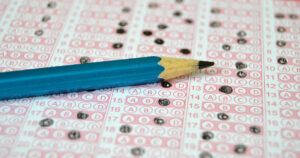
Why Some Students Excel While Others Struggle in School
Success in school is often attributed to intelligence, but the reality is far more complex. In Singapore, where academic achievement is highly valued, some students seem to breeze through their studies while others struggle to keep up. The reasons for this disparity go beyond natural ability and are influenced by a variety of factors, from learning styles to external support systems.
Learning styles and adaptability matter
Every student has a unique way of processing information. Some grasp concepts quickly through visual aids, while others prefer hands-on activities or detailed explanations. Those who excel often identify their preferred learning style early and adapt their study methods accordingly. On the other hand, students who struggle may not have discovered the most effective approach for them, making lessons seem harder than they actually are. Understanding one’s learning style and using the right strategies can significantly improve academic performance.The role of mindset and motivation
A strong growth mindset plays a crucial role in academic success. Students who believe that intelligence and abilities can be developed through effort tend to perform better than those who think their skills are fixed. High-achievers often embrace challenges, view failures as learning opportunities, and stay motivated despite setbacks. Conversely, those who struggle may fear failure, become discouraged easily, or lack the motivation to push themselves beyond their comfort zones.
The importance of time management and discipline
Excelling students are often disciplined and manage their time well. They plan their study schedules, prioritise important tasks, and set clear goals. In contrast, struggling students may procrastinate, get distracted easily, or have difficulty balancing academics with other activities. Studying during the holidayscan be a great way for disciplined students to stay ahead, while those struggling with time management can use the break to develop better habits by setting clear study goals and daily targets. Time management is a skill that can be developed with practice, and small changes, such as setting daily study targets, can make a big difference.
External support and resources
The availability of external support can greatly impact a student’s academic journey. Those who have access to additional learning resources, such as math tuition for secondary or primary students or enrichment programmes, often perform better because they receive targeted help in weaker areas. Private tutors or tuition centres can provide personalised guidance and reinforce concepts taught in school. For students who struggle, seeking additional support can bridge learning gaps and build confidence.
Family and peer influence
A supportive environment at home and among peers can shape a student’s academic success. Parents who are involved in their child’s education—by monitoring progress, providing encouragement, or setting a conducive study environment—contribute to better learning outcomes. Similarly, surrounding oneself with motivated peers can create a positive influence, as students often learn from one another. On the other hand, lack of support or negative peer pressure can make learning more difficult.
School curriculum and teaching approach
Singapore’s rigorous education system demands a high level of academic commitment. The teaching approach in schools, while effective for many, may not suit every student. Some thrive in structured environments, while others may need a more flexible approach to fully grasp concepts. Students who excel often take the initiative to ask questions, clarify doubts, and actively engage in lessons, while those who struggle may hesitate to seek help or lose interest in subjects they find challenging.
Coping with stress and pressure
The pressure to perform well in school can be overwhelming. Students who manage stress effectively tend to maintain better focus and perform consistently. Strategies such as maintaining a healthy lifestyle, taking breaks, and seeking help when needed contribute to academic resilience. Those who struggle often experience burnout, anxiety, or self-doubt, which can further hinder their progress.
Taking the right steps towards academic success
Every student has the potential to excel with the right approach and support. At Ace Academia, we recognise that each student learns differently and offer customised guidance to help them reach their full potential. Whether it’s improving problem-solving skills in science tuition for secondary school students or building a strong foundation in mathematics, our experienced tutors are here to provide the support needed for academic success.
Contact us now on WhatsApp at +65 8866 2223 to find out how we can help your child excel!










